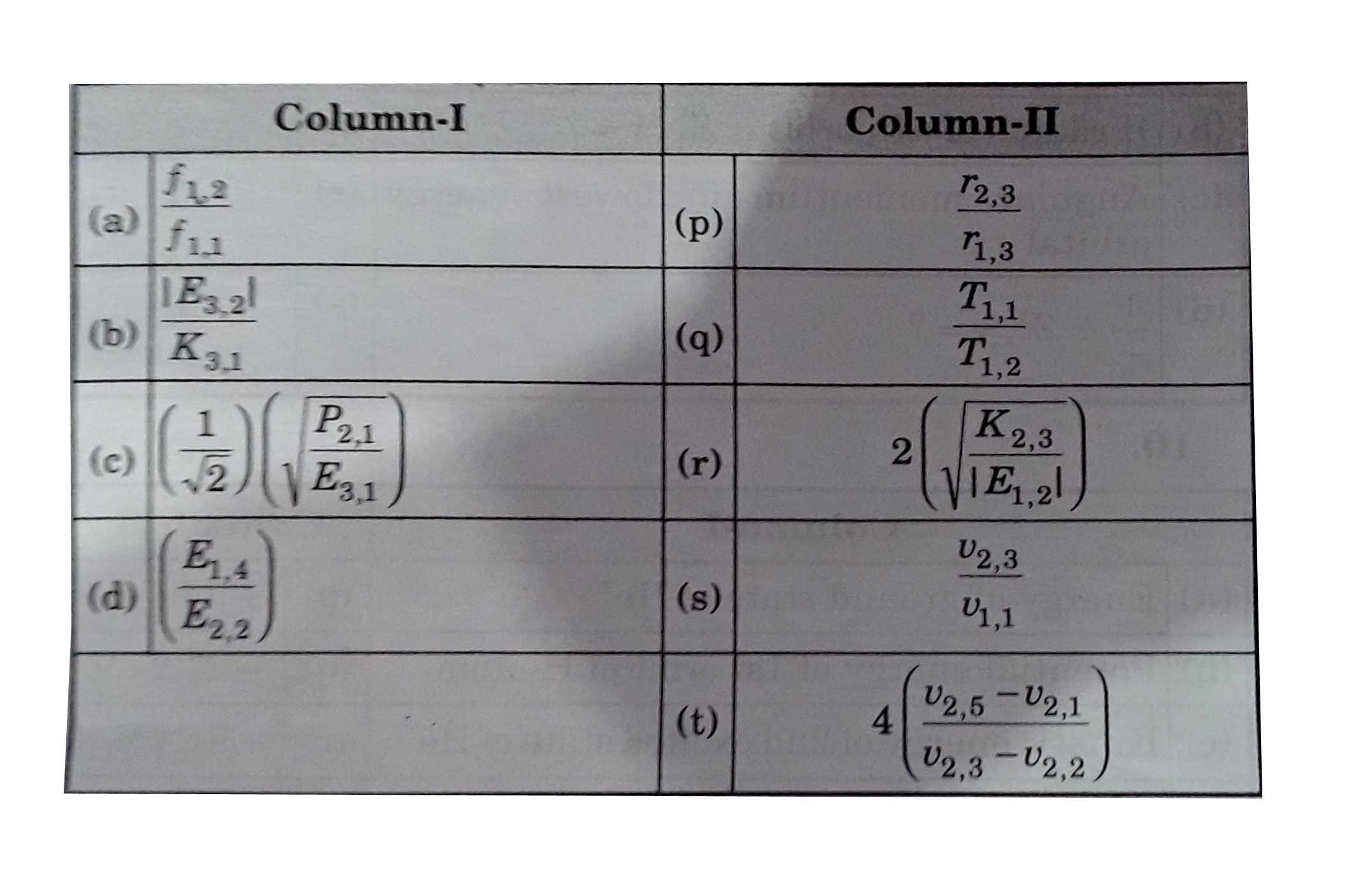Radius of nth orbit of a single electron species having atomic number 'z'
Velocity of electron in nth orbit of a single electron specie having atomic number 'z'
Magnitude of total energy of electron in nth orbit of a single electron species having atomic number 'z'.
Magnitude of kinetic energy of electron in nth orbit of a single electron species having atomic number 'z'
Magnitude of potential energy of electron in nth orbit of a single electron species having atomic number 'z'
Frequency of electron in nth orbit of a single electron species having atomic number 'z'.
Time period of electron in nth orbit of a single electron species having atomic number 'z'

Text Solution
The correct Answer is:(a-p , q) ; (b-p , q) ; (c-r,s ) ; (d-t)
|
Topper's Solved these Questions
- ATOMIC STRUCTUREBOOK - GRB PUBLICATIONCHAPTER - ATOMIC STRUCTUREEXERCISE - Subjective Type
55 Videos
- ATOMIC STRUCTUREBOOK - GRB PUBLICATIONCHAPTER - ATOMIC STRUCTUREEXERCISE - Comprehesion Type
38 Videos
- CHEMICAL EQUILIBRIUMBOOK - GRB PUBLICATIONCHAPTER - CHEMICAL EQUILIBRIUMEXERCISE - D.Le Chateliera principle
16 Videos
Similar Questions
Knowledge Check
Kinetic energy of electron in nth orbit is given by
ARhc2n2B2RhcnCRhcnDRhcn2Total energy of electron in nth stationary orbit of hydrogen atom is
A13.6n2JouleB13.6n2eVC−13.6n2eVD−13.6n2JouleTotal energy of electron in nth stationary orbit of hydrogen atom is
A−13.6neVB−13.6n2eVC−136neVD−136n2eV
Magnetic moment of an electron in nth orbit of hydrogen atom is
View SolutionTotal energy of electron in nth stationary orbit of hydrogen atom is
View SolutionThe kinetic energy of the electron in the nth orbit of an atom is given by the relation
View SolutionThe energy of an electron in the nth Bohr orbit of hydrogen atom is
View SolutionThe total energy of an electron in the nth orbit of the hydrogen atom is proportional to
View Solution
